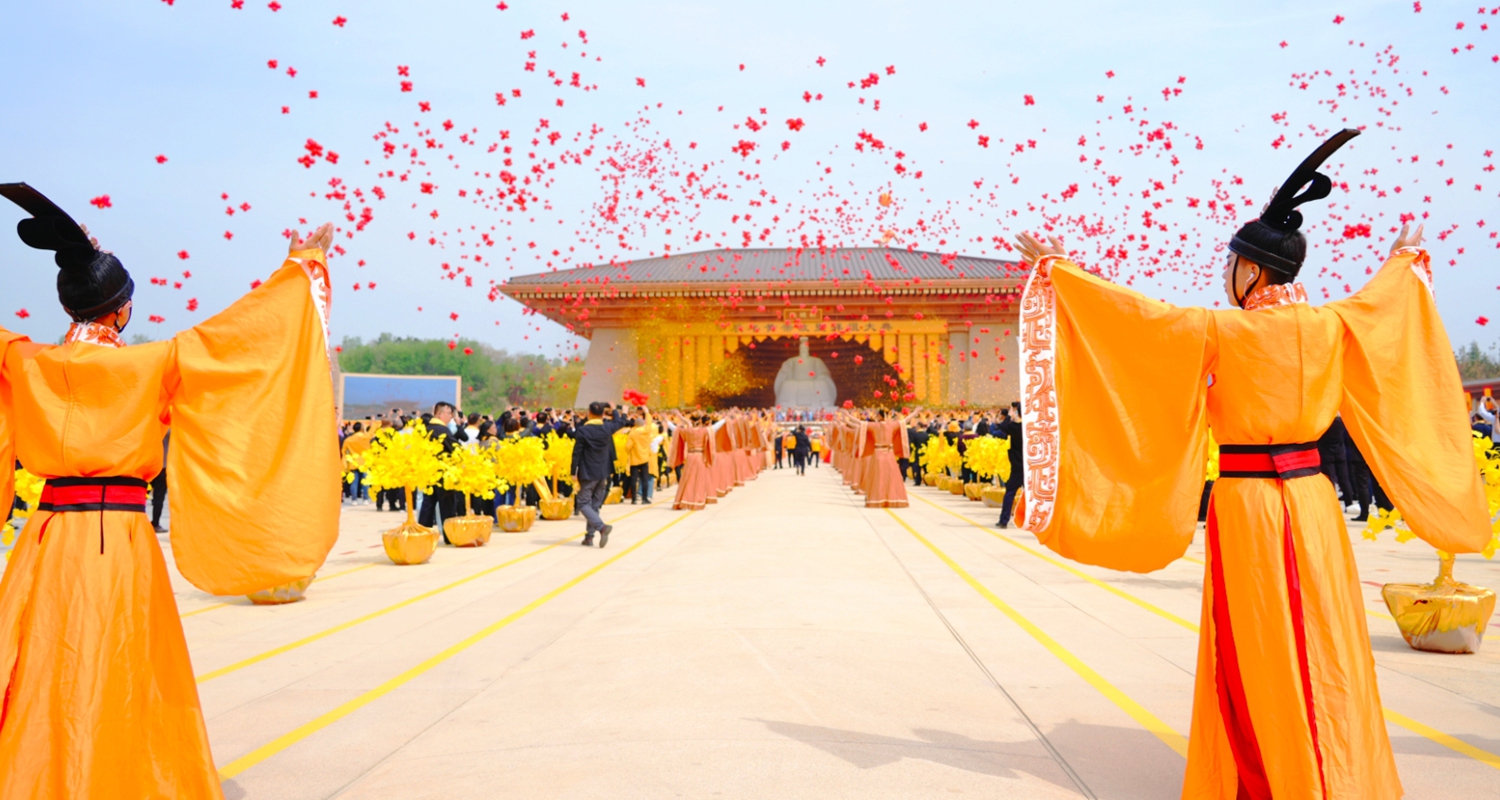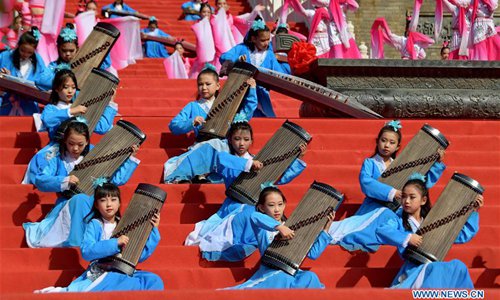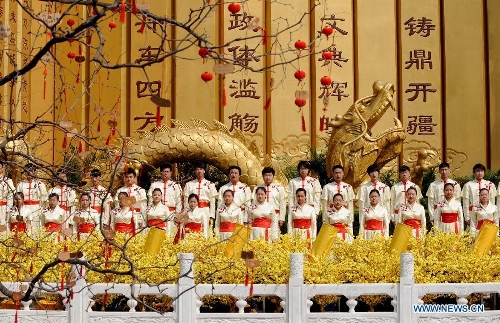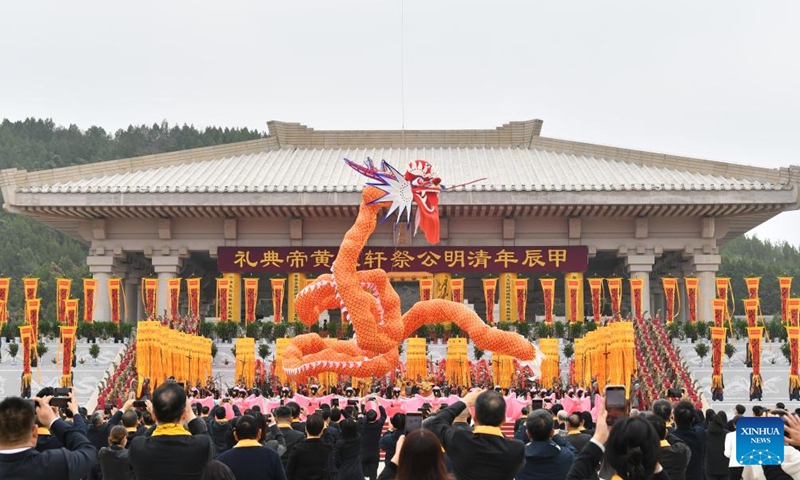Chinese people pay tribute to legendary ancestor Huangdi
Yellow Emperor ‘symbolic totem’ of civilization

Photo: VCG
A sacrificial ceremony dedicated to the mythical Huangdi, also known as the Yellow Emperor, was on Thursday held in Zhengzhou, Central China's Henan Province, the "hometown" of the cultural hero.Several traditional activities such as reading sacrificial texts, displaying floral baskets and singing traditional commemorating songs were held during the ceremony.
Folk cultural expert Xiong Gang told the Global Times that these worship routines have been listed as a "national cultural treasure as they are a spiritual guideline for the country's cultural-socio growth." In 2008, the Yellow Emperor commemorating event in Henan was listed as a national-level intangible cultural heritage.
Although the Yellow Emperor is a mythical hero, his presence in Chinese history can be traced since ancient times. For instance, during the Qin Dynasty (221BC-206 BC), Emperor Qinshihuang, the first emperor of China, was inspired by the mythical figure to come up with the title "Huang Di," literally "Magnificent Emperor."
Dou Saiming, a cultural policy researcher, told the Global Times that the Yellow Emperor is a "symbolic totem" of the development of Chinese civilization. The figure embodies qualities such as the "spirit of exploration" and the "belief in peace, harmony, unity and constant innovation."
Many of the Yellow Emperor's contributions can be found in texts like the Classic of Mountains and Seas, Zhuangzi, an essential text for Taoism, and also Records of the Grand Historian, China's first biographical general history.
Dou also emphasized the Yellow Emperor's innovative spirit. He told the Global Times that it is said China's 12 zodiac signs and the compass were allegedly invented by the Yellow Emperor. He was also known for his engineering talents in designing the well-digging system.
In order to get more of the general public engaged in the event, the Yellow Emperor commemoration event was held both offline and online on social media platforms like the Haokan Video platform. This up-to-date digital cultural promotion greatly helps engage young viewers and overseas watchers.
Alongside the public event, a discussion forum focusing on "Yellow Emperor culture and the innovative mission of Chinese modernization" was launched on Tuesday, also in Henan.
Zhang Yiwu, a professor of Chinese language and literature at Peking University, said at the forum that the ancient creativity attributed to the Yellow Emperor is a "major resource" for China to contribute its wisdom to the world's modern development.
The forum covered topics such as how the Yellow Emperor represents China's spirit in the new era and which of China's unique cultural characteristics are represented by the Yellow Emperor.
"The Yellow Emperor invented a cultural theory that encourages us to always forge forward with the belief of unity and peace in mind. Although we do not mention his name every day, his legacy still guides our social lives nowadays," said Liu Qingzhu, the director of the School of History at Zhengzhou University, who also attended the forum.
The Henan events are only two of the many cultural activities organized in China to commemorate the Yellow Emperor.
In Jinyun county, Zhejiang Province, Yellow Emperor commemorations are held near two annual festivals - the Qingming Festival in spring and the Chongyang Festival, also known as the Double Ninth Festival, in Autumn. Besides Henan, Shaanxi Province is also known as the Yellow Emperor's "hometown" due to the archaeological site known as the Huangdi Mausoleum.
"We need to make good use of such historical sites to carry out public cultural education activities," Dou told the Global Times.



